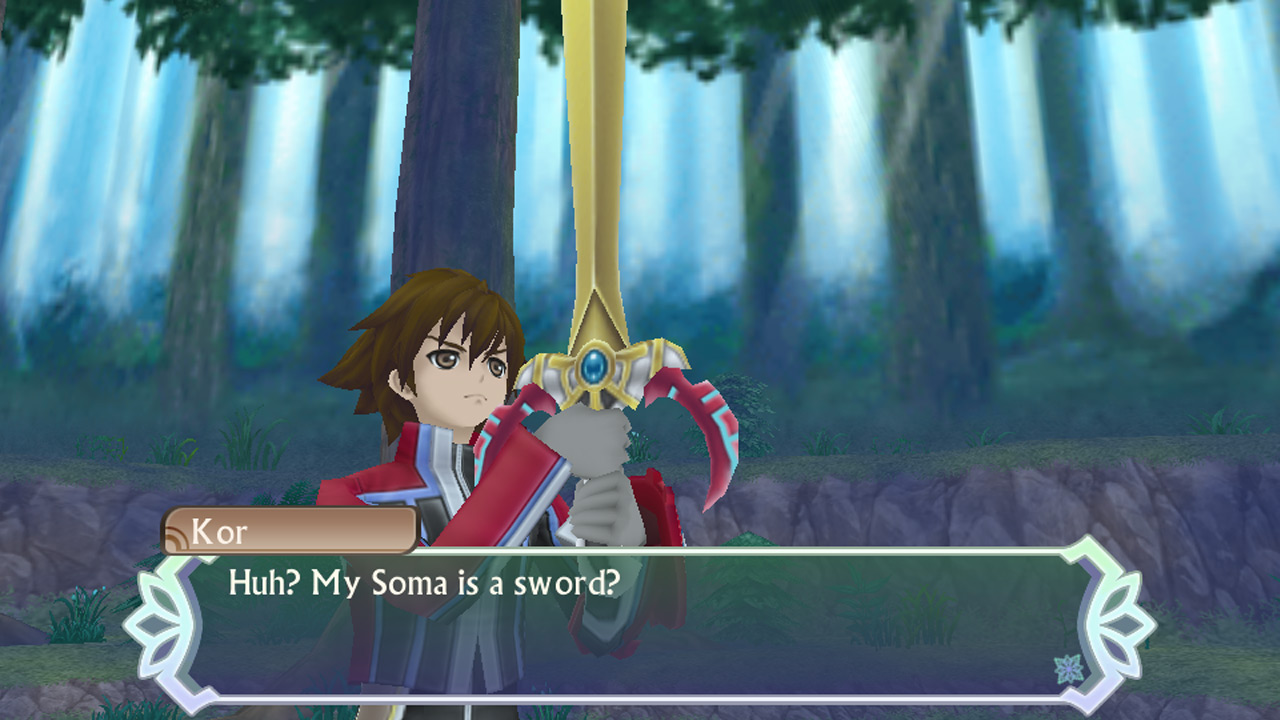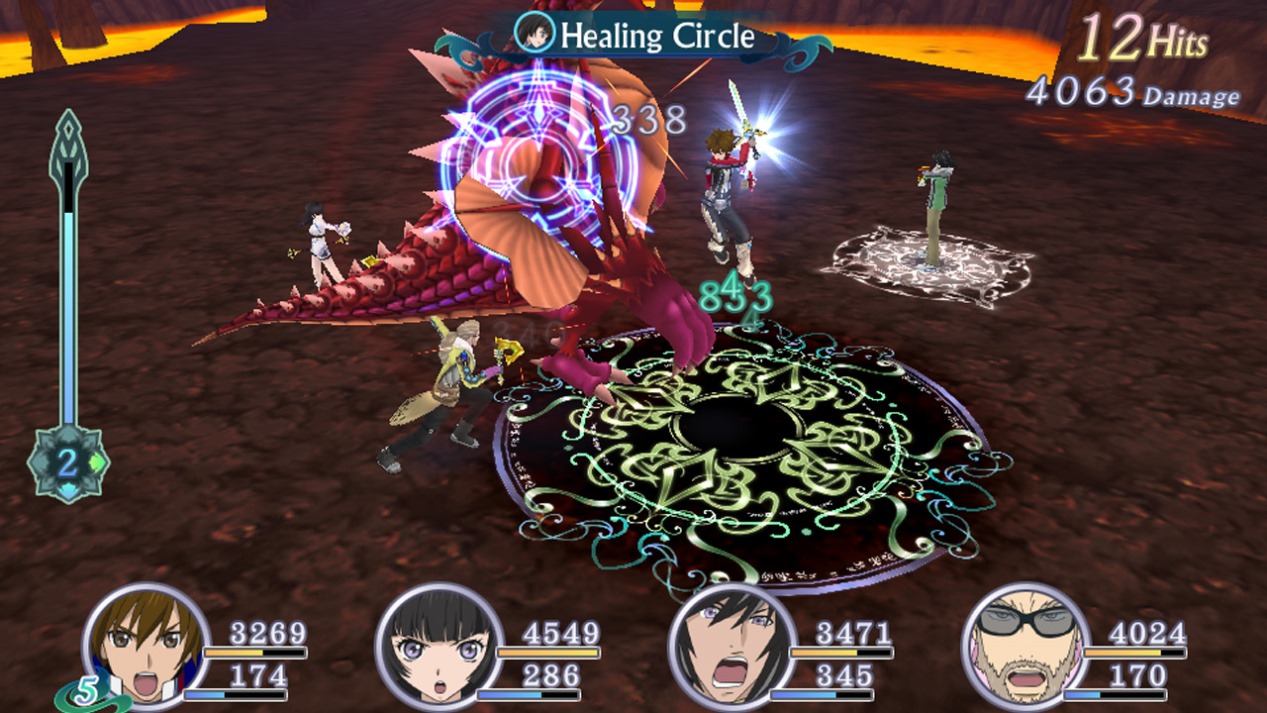Triple-A releases are already thin on the ground for the struggling Vita, and with Sony openly admitting that traditional high profile titles are all but done on the platform, it’s good to see that the Vita’s limited but nonetheless sustained success in the west ensures that we are still being drip fed major releases from some of the more Japan-centric developers of this world. Of course, that will come as little comfort for those uninterested in quirky JRPGs, but for those with a taste for lengthy, if admittedly old fashioned role playing games, the Vita still has a lot to offer.
A fine example is the recently released, Tales of Hearts R, an impressive remake of the 2008 3DS original that replaces that games’ sprite-based battle system with a fully 3D, home console quality equivalent. As per the original, the story still isn’t up to much and the characters remain disappointingly forgettable, but despite these issues, Tales of Hearts R remains a worthwhile addition to the Vita library thanks to its impressive production values, vast world and fantastic battle system.
It could be argued that the dungeons themselves are a bit short (especially in comparison to the vast overworld), but with this being a handheld release, I would happily counter that they are perfectly suited to shorter bursts of gameplay with Tales of Hearts R striking a successful balance between traditional JRPG gameplay and the requirements for success on a handheld platform. Yes, in comparison to standard console releases, they are unquestionably short and undeniably repetitive, but again, for a handheld release, this is still both a technically impressive game and more importantly, one which has been successfully adapted to the handheld format. I’m sure the Vita could have handled longer, more intricate dungeons, but the fact of the matter is, they simply wouldn’t have suited gaming on the go.
Either way, whether you feel that the dungeons are repetitive, too short or overtly linear (which they are until later in the game), Tales of Hearts R’s battle system does make these issues surprisingly easy to overlook. Always a strong point for the series, Heart R’s battle system will feel immediately familiar to those who have experience with the long running Tales series – played out in real time rather than via turned based battles, Hearts R uses an array of timed meters to ensure that gameplay never descends into pure button mashing, offering up a system that feels immediate while still retaining the more tactical elements we associate with JRPGs.
The core is based around basic strikes and assignable Artes (special attacks in human talk) – these will get you through the majority of the bread and butter randomly generated battles, but as you progress and subsequently come across trickier opponents, you will soon find yourself having to employ Spiria Drives, Chase Links and counters etc. You will also have to ensure that the remainder of your automated team are prepared for battle with their standard actions defined by the choices you make pre-battle. Whether it be attacking, defending or supporting, your decisions relating to the remainder of your team can (and will) mean the difference between victory and defeat.
These choices will ultimately be linked to the way in which you choose to level up your team, something that, thanks to its intuitive and well-crafted system, only enhances the subsequent battle system. Levelling does take a while, but grinding is largely unnecessary with improvements and enhancements feeling natural rather than forced. The character specific skill trees are clear and easy to use and make team management a surprisingly enjoyable and mostly trouble free venture.
Sadly, as great as the levelling and battle systems might be, the same cannot be said for the games truly forgettable story. While it does start interestingly enough with a premise that is at least initially intriguing, an array of mostly bland characters and a genuinely unremarkable lead combine to create a world that ultimately falls short of its rock solid underlying systems.
As Kor Meteor (great name, rubbish character), you are tasked with collecting Kohaku’s shattered ‘Spiria’ (essentially her emotions made physical) which have been rather inconveniently spread across the world. It’s a solid start, but with the story continually bogged down, the initially interesting Kahaku robbed of her emotions for a large part of the game (thus numbing the underlying attempts at romance), and Kor a consistent source of annoyance and JRPG cliché, Tales of Hearts R provides a story that, while home to a handful of highs, ultimately fails to live up to its inherent potential.
The disappointing characters and story keep this from being a genuine ‘must have title’ (something that the Vita is in dire need of), but despite its shortcomings, this is a technically impressive, extensive and largely enjoyable JRPG. The visuals (despite some repetition) are genuinely impressive with the dialogue completely voiced – albeit in Japanese. Sure, the story never really clicks, but the battle system is first class with plenty of customisation options for those who want to micro manage their team of adventurers. Tales of Hearts R might not be the game to put the Vita back on the map, but it is one of the few games currently available that at least attempts to test its limits.
REVIEW CODE: A complimentary Sony Playstation Vita code was provided to Bonus Stage for this review. Please send all review code enquiries to press@4gn.co.uk.
Subscribe to our mailing list
Get the latest game reviews, news, features, and more straight to your inbox
Thank you for subscribing to Bonus Stage.
Something went wrong.
-
Gameplay - /10
0/10
-
Graphics - /10
0/10
-
Sound - /10
0/10
-
Replay Value - /10
0/10









